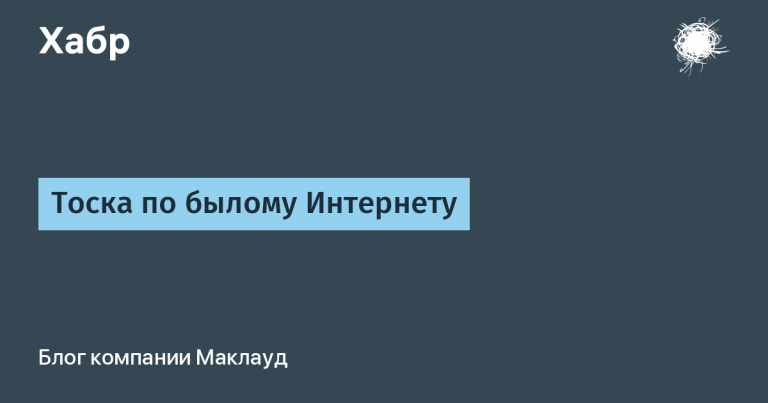Immodest figure for the Nizhny Novgorod region

Development Center “NEW ERA” and ANO “Gorky Tech” held a joint study about the attitude of Nizhny Novgorod youth to the IT sector. Some results confirmed the obvious. For example, that the absolute majority is in favor of Russia achieving digital sovereignty as soon as possible.
However, the survey revealed less predictable nuances that are only apparent to professionals immersed in the digital sphere. They were noticed by federal experts who reviewed the study. This is the head of the Office of the Commission in the direction of “Communications, Communications, Digital Economy” of the State Council of the Russian Federation Olga Mineeva and Vice President of the Association of Laboratories for the Development of Artificial Intelligence (ALRII) Anna Nikitchenko.
Digital is changing the market

The speed with which Russian infotech is growing is considered high by 2/3 of those surveyed. Almost 60% of study participants assess the pace of development of digital technologies directly in the Nizhny Novgorod industry as “very good”. Another part is sure that such dynamics are not new, but rather a tradition of the Nizhny Novgorod region. Here, in 1963, the country’s first Faculty of Computational Mathematics and Cybernetics appeared, in fact, the cradle of the domestic scientific IT school.
IT specialists, in turn, pay attention to the global changes caused by the rise of “digital” and far beyond the boundaries of the industry.
Olga Mineeva
CHIEF OF THE STAFF OF THE COMMISSION FOR “COMMUNICATIONS, COMMUNICATIONS, DIGITAL ECONOMY” OF THE RF STATE COUNCIL
The future has already arrived, and we are seeing the structural changes it brings: the disappearance of some types of activities and the emergence of others, fundamentally new professions and tasks, the emergence of new models and formats for interaction between workers and employers. Labor markets with higher technology penetration are already characterized by a large share of people employed in the gig economy. In other labor markets, the most pressing issues will be the creation of quality jobs for young people and the provision of conditions for flexible and virtual employment formats.
Allow it in IT

The main beneficiaries of digital development were named by respondents as business (85.9%), IT companies themselves (83.7%) and the state (78.9%)*. And many people are interested in joining this promising and dynamically growing environment. More than half of those surveyed would like to master an IT profession in the future.
A total of 76.2% of survey participants have already taken part in IT projects or are happy to get involved in such work today. They are also stimulated by the understanding that this will in any case have a positive impact on their professional and career development.
Moreover, young people are ready to try their hand, regardless of whether they have the appropriate experience, skills, or education.
* the question allowed multiple answer options, so the total score exceeds 100%.
Anna Nikitchenko
VICE PRESIDENT OF THE ASSOCIATION OF LABORATORIES FOR THE DEVELOPMENT OF ARTIFICIAL INTELLIGENCE
For the employer at present, at least in this area, it is not education that plays a role, but only the specific knowledge that he needs. And in general, it doesn’t matter how this knowledge was obtained – in college, university, courses or through self-study.
Their Young people rate the chances of getting a digital job in the Nizhny Novgorod region highly. 69.2% of respondents are sure that this is easy to do today. The areas of greatest interest are artificial intelligence, machine learning and neural networks.
Artificial intelligence requires natural intelligence

As for opportunities to develop “digital” skills, in addition to specialized training at a university, almost 90% of study participants rely on self-education. Another 50% rely on paid and free courses.
This is where experts throw out a red flag. In the IT field there are now really a lot of relatively simple tasks that you can learn to solve after completing a high-quality intensive course. They pay well. But enthusiasm and basic skills are no substitute for fundamental knowledge.
“Many simply do not understand that in order to develop technologies of artificial intelligence, machine learning and neural networks, you need to be very well versed, at least in mathematics. In the case of complex problems, a specialist must have spatial, almost scientific, thinking, allowing him to look at the problem comprehensively.”– warns Anna Nikitchenko.
Courses and self-study are necessary not only for IT neophytes, but also for people who have received extensive specialized education. According to Anna Nikitchenko, vice-president of the Association of Laboratories for the Development of Artificial Intelligence, training should continue throughout one’s working life. And at a fairly fast pace, since technologies change and develop extremely quickly.
General interest

There is another problem that requires an integrated approach and an early solution. Often the knowledge acquired in educational institutions is “divorced” from the actual needs of employers. Certified specialists have to be retrained.
“In addition to the general, “fundamental” education, students need to be “sharpened” during the learning process for a large number of specific tasks and cases that are needed in enterprises or organizations here and now. Training should include a large share of practice, preferably in partner companies on the basis of mutually beneficial cooperation.”– argues Anna Nikitchenko.
This can be done if the authorities, the scientific community and IT companies concentrate their efforts on creating a fundamentally new approach to the educational process. Without science, knowledge will not be truly fundamental. And no one knows better than the IT business what specialists it needs today and what it will need tomorrow.
Exactly like this A world-class IT campus will become a point of intersection of interests and joining forces NEIMARK. It is being built in Nizhny Novgorod as part of the national project “Science and Universities”.
Besides, the campus can become an integrator of innovative ideas of its former and current students, an assistant in the commercialization of such innovations. This is a very serious competitive advantage both for the author of the idea, and for the campus, and
for the region as a whole.
“The interuniversity campus and at the same time the large educational ecosystem NEIMARK is a new format for obtaining full-cycle IT knowledge in a flexible mode”– summarizes the head of the Office of the Commission in the direction of “Communications, Communications, Digital Economy” of the State Council of the Russian Federation Olga Mineeva.
Same name ecosystemwhich allows you to attract interested young people to IT, is already functioning. Career guidance sessions are held for schoolchildren and their parents NEIMARK.Webinars. An educational and educational project has been launched for students NEIMARK.Lecture Hall, designed to popularize digital professions and introduce outstanding people from the IT field. To educate schoolchildren, NEIMARK.IT-Academy — camp with full board, accommodation and training in digital disciplines.
Talented students enrolled in IT majors at Nizhny Novgorod universities will be able to receive scholarship named after Yu. I. Neimark. For those who want to improve their training in the most popular information technology specialties, we have launched NEIMARK.Intensives — network programs for advanced training with the possibility of subsequent employment. The program is being implemented NEIMARK.For teachers for retraining of teachers of technical specialties.


As for the Nizhny Novgorod campus itself, permission was recently received for the construction of another dormitory building for students studying there on Gagarin Avenue. At another site – on Bolshie Ovragi Street – three buildings to accommodate students are being finished.
After all work is completed, there will be places to live for about 5.6 thousand future IT specialists. Educational areas will be designed for 8 thousand people.





